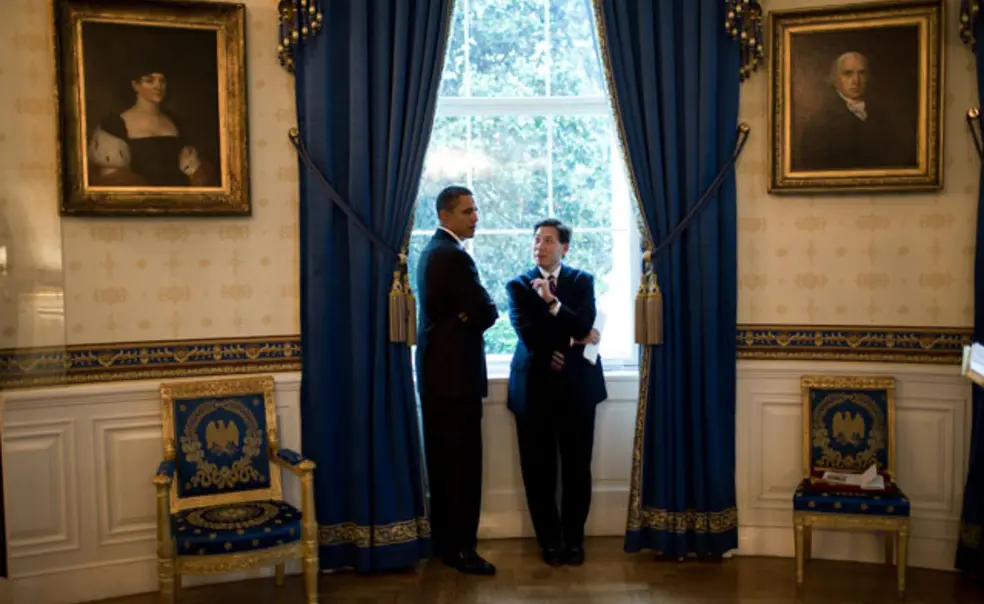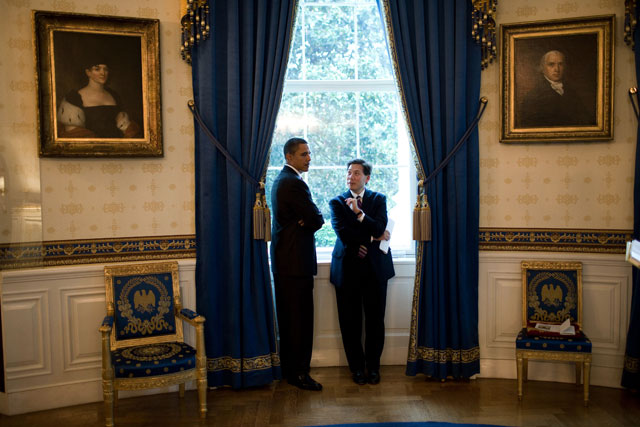Q&A with Chris Lu '88, on working for President Barack Obama
(Photo: White House Photo Office)
In 2005, a young U.S. senator from Illinois asked Chris Lu ’88 to serve as his legislative director. Three years later, Barack Obama was elected president, and Lu was appointed as the White House Cabinet secretary. Lu stepped down from that position in February so that he could, as he told The Daily Princetonian, “enjoy some things I haven’t had a chance to enjoy over the last eight years.”
Was it difficult to make the decision to leave the White House?
I’ve been with the president since almost the day he came into Senate. It’s hard to leave, but for me it was the right time personally and professionally for a transition. For the president, being in the White House is a marathon, but for the White House staff it’s a sprint, and before you drop, you pass the baton to somebody else. It’s a nonstop schedule.
Before you go into a job like this, you need to find some balance in your life. If you let yourself, you could work every waking hour. My days usually started at 5 a.m., running in the dark. Having that time by myself to think and clear my head was important.
You were one of the most senior Asian-Americans in the Obama administration.
My parents were both immigrants to this country — they were born in China and came here from Taiwan to go to college in the late ’50s. At the time, it would have been unthinkable to them that their son someday would be working in the White House. I never got jaded about what it meant, and what a unique experience that was. Throughout history, there have not been a lot of people who looked like me who worked at the White House.
You’ve known President Obama since the two of you attended Harvard Law School together. What’s he like on a personal level?
He is every bit as kind, thoughtful, and decent in private as he is in public. He has a remarkable sense of humor, and he remembers details about your family. He’s not only been my boss for the last eight years, he’s been my close friend as well.
And what’s it like working for him?
If he’s in a room full of people, he wants to hear different viewpoints. He is always the smartest person in the room, so you have to come to the table well prepared. You know that if there is a flaw in your argument, he will find it.
You served as Obama’s Cabinet secretary, the liaison between the president and the Cabinet. Tell me about being asked to serve on the White House staff.
Rahm [Emanuel, Obama’s former chief of staff] called me into his office — I think it was the Saturday after election day — and offered me this job. I said, “That’s great, but I’m a little concerned about my ability to get the Cabinet to do things, or not do things.” And Rahm said, “I might chew you out in private, but I’ll always have your back in public.”
Almost every day, my job required me to relay bad news from the White House to a Cabinet member. And if a Cabinet member was mad at the White House, they often called me to vent.
What have you been doing since leaving the White House?
I’m doing some interesting consulting projects, and I was a visiting fellow in April and May at the University of Chicago’s Institute of Politics [directed by former Obama adviser David Axelrod]. I taught a seminar on the power of the presidency in a time of political gridlock.
The president has graciously left the door open for me to return to the administration, and I’m very grateful for that. I’ve been in politics now for 16 years, so it was good for me to take a little time away and see if I have another stint of public service left in me.
—Interview conducted and condensed by Jennifer Altmann
This interview also appeared in PAW’s 2013 Reunions Guide.













No responses yet